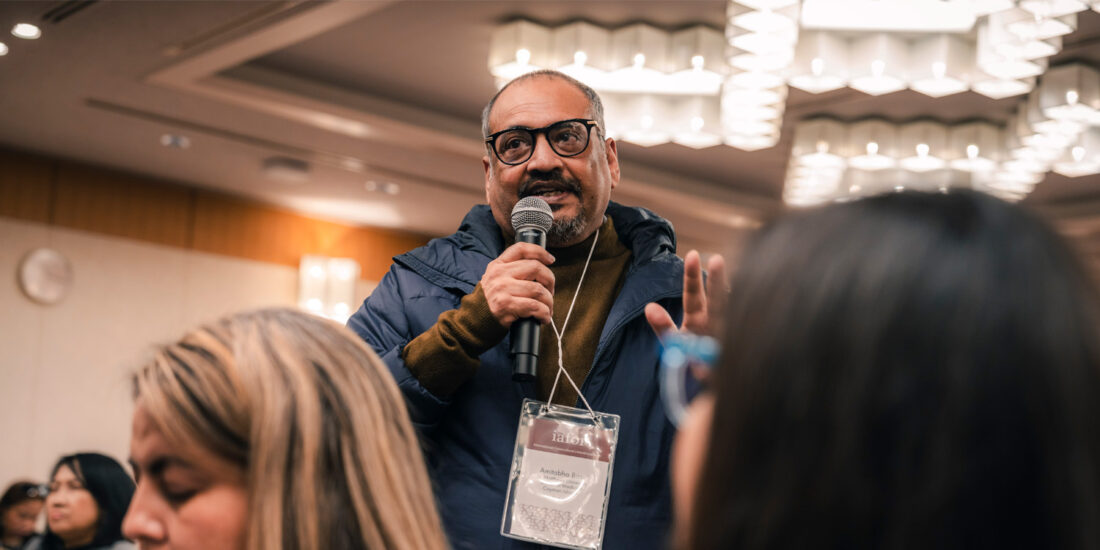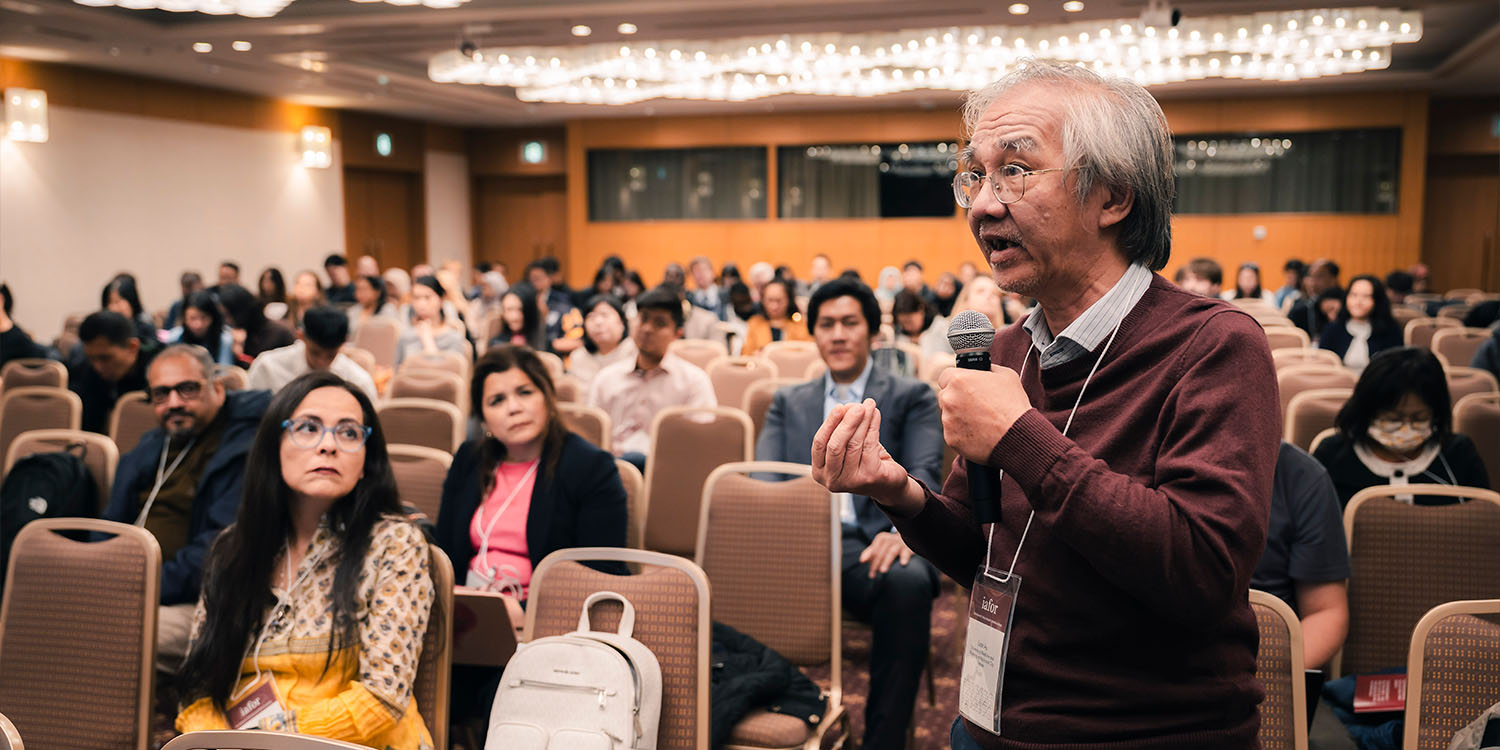With the backdrop of Hawaii as an example of considerable environmental harm meeting sustainability efforts, both led by the military-industrial complex and its allied institutions, IAFOR invites delegates at the IICE/IICAH2025 Conference to the Forum discussion on ‘Global Citizenship and the Environment: Engagement and Action’ to discuss issues related to how we can sensitise and compel people to climate action. In a period of great upheaval and uncertainty around political administration, how can we get people to care about and act on environmental sustainability?
Climate change can be a controversial subject. A significant segment of society perceives climate change as a ‘hoax’, a term aligning with the ‘comfortable lie’ many want to believe in. Former United States Vice President Al Gore famously referred to this phenomenon as an ‘inconvenient truth’: the psychological and behavioural resistance to acknowledging realities that necessitate lifestyle changes. This view enables individuals to continue living without addressing threatening issues caused by climate change. Others may believe that the threat is imminent and fall into despair, completely abandoning the will to fight against it. Then again, the cost assigned to each country and its taxpayers may be perceived as too high and not a priority, especially within an economic climate of rising costs and inflation. With such hurdles obstructing the urgent call to action regarding climate change, raising awareness against climate change may not be enough to compel people to action. How did we arrive at this psychological deadlock, and how do we get people to care, engage, and act against climate change?
Climate sceptics exhibit similar behaviours to those believing in conspiracy theories, with some observing that the Venn diagram of coronavirus and climate deniers is nearly a circle (Nuccitelli, 2020). There are several types of climate change denial. In The Conversation, a taxonomy of five types of denial was published: l: science denial (based on lack of scientific certainty), economic denial (high costs associated with combating climate change), humanitarian denial (based on the view that higher temperatures are good for economic productivity and, thus, humanity), political denial (inaction influenced by others’ inaction), and crisis denial (based on the view that climate change is a problem but not as big as scientists make it out to be) (Maslin, 2019). Whether sceptics are sensitive to the inconvenience of climate solutions, to how the powerful are exempted from climate change measures, or whether they believe it is a hoax based on anecdotal evidence, climate deniers are located on a five-stage continuum: Stage 1: Deny the problem exists; Stage 2: Deny responsibility; Stage 3: Downplay the threat; Stage 4: Attack the solutions as too costly; Stage 5: It’s too late (Nutticelli, 2013).
Narratives and rhetoric have a profound impact on people’s perceptions of climate change, including whether they seek to educate themselves on the topic or choose to consume information from media outlets. Therefore, how leaders, public figures, and the media approach climate change is extremely important for the public’s understanding of the issue. Political leadership, political institutions, and the media have a responsibility to factually educate the masses by avoiding appealing to emotion and to set an example of responsible behaviour towards the environment and sustainability efforts.
The rhetoric behind climate change denial started decades ago when NASA climate scientist James Hansen testified to Congress in 1988 that global warming was a worrisome issue. According to Nutticelli (2020), after this scientific revelation, the fossil fuel industry formed the Global Climate Coalition to counter climate science. ‘In a memo leaked in 2003, Republican strategist Frank Luntz advised GOP politicians, “You need to continue to make the lack of scientific certainty a primary issue in the debate”’, writes Nutticelli. Jennie King from the Institute for Strategic Dialogue (ISD), a think tank that researches global disinformation trends, believes that deniers do not see the problem as a policy issue, but an issue of vested interests playing with the ideas of power, personal freedom, agency, citizen against state, and loss of traditional lifestyles to manipulate public opinion (Spring, 2021).
The media’s responsibility in this complex cognitive process is exceptionally vital, as has been seen with the ‘Climategate’ scandal in 2009. Climategate involved a series of leaked emails from Professor Phil Jones’ account, who was then Head of the Climate Research Unit at the University of East Anglia, United Kingdom. The emails entailed a harmless conversation between scientists who were trying to find appropriate ways of illustrating a graph of global temperature changes. The content of the email was intentionally misinterpreted by Sarah Palin, former United States vice-presidential candidate, as scientists seemingly trying to tweak data to ‘hide the decline in global temperatures’ (McKie, 2019). The article coining the term was published by the Washington Post, alluding to the media’s susceptibility to fictitious narratives and political pressure.
The vested interests’ influence in the fossil fuel industry on disseminating disinformation, enhanced by the military-industrial alliance, is undeniable. Not many realise that militaries are among the world’s biggest consumers of fuel (mostly used for fighter jets), accounting for 5.5% of global emissions, as opposed to civil aviation, which accounts for approximately 2% (Mallinder, 2023). The United States Army, possessing more than 750 overseas bases, or three-quarters of the world’s military presence, is thereby the largest institutional polluter in the world. Aside from greenhouse emissions, it is also responsible for destroying ecosystems and biodiversity, toxifying oceans, consuming natural resources, destroying indigenous land, and endangering the health of local populations living around military bases.
Specifically in the Pacific Region and Hawaii, the US Army’s destruction started with the nuclear testing on Bikini Atoll in the Marshall Islands from 1946 to 1958, when the environment and the local population were exposed to Chernobyl-like levels of radiation. Today, ‘the widespread use of per- and poly-fluoroalkyl substances (PFAS), a so-called forever chemical mainly found in fire-fighting foam, on domestic installations and foreign bases like Okinawa in Japan, [which are] resistant to breakdown… poison the waters, causing birth defects and cancer’ (Mallinder, 2023). Held off the coast of Hawaii every year and attended by many nations’ militaries, the biennial Rim of the Pacific (RIMPAC) military exercise – the world's largest international maritime warfare exercise – is especially devastating to the Hawaiian ecosystem and population. For example, during an ammunition shooting exercise on decommissioned ships, the resulting wreckage sinks to the bottom of the ocean, with toxic waste leaking into the water (Paterson, 2024). The underwater explosions are also a threat to marine life and endangered species. Other destructive military exercises also happen on indigenous land, which has detrimental socio-economic implications for the local, marginalised communities (Uyeda, 2022).
Despite this large-scale environmental destruction, military institutions, and the US military in particular, are not held accountable. During The Conference of the Parties (COP), the annual United Nations’ Climate Summit where world leaders discuss climate change and solutions, the US military-industrial complex fades into the background. ‘The military sector is exempt from transparency requirements at the COP and within UN climate agreements… a deliberate omission, one meant to hide the environmental and social costs of militarism from view’ (Kirshenbaum & Garriga, 2024). On the other hand, developing countries are called upon to pay higher prices for climate change action, despite developed countries and their institutions not being held accountable for causing the most environmental pollution. According to Professor Jun Arima (Tokyo University, Japan), chief negotiator representing Japan at the recent COP29, a rift between developed and developing countries resulted from this disparity: ‘developing countries were extremely disappointed in the lack of funding from developed countries’. With the cost of climate change action being raised to trillions of dollars, and taxpayers being asked to shoulder the higher costs, international cooperation on climate change has become extremely difficult to foster, with many casting doubts that the SDGs can truly be reached by 2030.
Even if taxpayers were to shoulder the responsibility of climate change action in both financial and behavioural terms, it is not surprising to see that some align themselves with the concept of the ‘tragedy of the commons’. The concept sees any change in behaviour as ‘useless’ in the face of indefinite exploitation and overuse of valuable resources because even if some people exercised voluntary restraint, others would replace the irresponsible consumption, resulting in a ‘tragedy’ for all. A common response attributed to this way of thinking is ‘Why should I change my behaviour when others do not care?’ A comment by a user on Reddit, an online forum discussion platform, explains the view held by many commentators online:
Should we be punishing the average citizen for using fossil fuel energy while at the same time turn a blind eye to elites who consume way more energy but do it out of sight and out of mind? Because that’s what is actually happening. The lower you are on the power spectrum, the higher price you are going to pay for the changes brought about by climate change. When you have been asked to participate in a car dominated society, given cheap gas, freeways to everywhere and everything, for generations, and then the government all of a sudden says “hold on, you can’t drive anywhere you want anymore, that’s bad for the environment, shame on you”, the blame is deflected from something the government created to the common people who had no choice to use it… Understand the little man and the idea of the hoax becomes easier to understand.
Climate change denial is a complex and controversial issue rooted in several factors: manipulation of public opinion by religious, political, and institutional leaders; the public’s susceptibility to disinformation; a natural instinct to cast more importance on anecdotal evidence rather than scientific knowledge; and a general distrust of public institutions. Navigating through this complex environment of information overload, the individual is pushed deeper into the process of ‘belonging and othering’, antagonising society itself.
Global Citizenship and the Environment: Engagement and Action
Moderators: Professor Michael Menchaca and Dr Melina Neophytou
We invite delegates at The 10th IAFOR International Conference on Education (IICE2025) and The 5th IAFOR International Conference on Arts & Humanities (IICAH2025) in Hawaii to this Forum discussion titled ‘Global Citizenship and the Environment: Engagement and Action’ to discuss the following questions:
Place: 320 Theatre & Online
What to bring: A smartphone with a QR-reading function
References
Kirshenbaum A., Garriga M. (November 11, 2024), “At COP29, Let’s Demand Accountability From the Military-Industrial Complex”, Common Dreams, Accessed online: https://www.commondreams.org/opinion/military-industrial-complex-climate-change
Mallinder L. (December 12, 2023), “‘Elephant in the room’: The US military’s devastating carbon footprint”, Al Jazeera, Accessed online: https://www.aljazeera.com/news/2023/12/12/elephant-in-the-room-the-us-militarys-devastating-carbon-footprint
Maslin M. (November 28, 2019), “The five corrupt pillars of climate change denial”, The Conversation, Accessed online: https://theconversation.com/the-five-corrupt-pillars-of-climate-change-denial-122893
McKie R. (November 9, 2019), “Climategate 10 years on: what lessons have we learned?”, The Guardian, Accessed online: https://www.theguardian.com/theobserver/2019/nov/09/climategate-10-years-on-what-lessons-have-we-learned
Nuccitelli D. (16 September, 2013), “The 5 stages of climate denial are on display ahead of the IPCC report”, The Guardian, Accessed online: https://www.theguardian.com/environment/climate-consensus-97-per-cent/2013/sep/16/climate-change-contrarians-5-stages-denial
Nuccitelli D. (April 14, 2020), “Coronavirus doubters follow climate denial playbook”, Yale Climate Connections, Accessed online: https://yaleclimateconnections.org/2020/04/coronavirus-doubters-follow-climate-denial-playbook/
Paterson T. A. (June 26, 2024), “Rimpac war game begins - Hawaiian academic calls it out as ‘how to invade’”, Te Ao Maori News, Accessed online: https://www.teaonews.co.nz/2024/06/27/rimpac-war-game-begins-hawaian-academic-calls-it-out-as-how-to-invade/
Spring M. (16 November, 2021), “Covid denial to climate denial: How conspiracists are shifting focus”, BBC, Accessed online: https://www.bbc.com/news/blogs-trending-59255165
Uyeda R. L. (July 26, 2022), “US military activity in Hawai’i harms the environment and erodes Native sovereignty”, Prism, Accessed online: https://prismreports.org/2022/07/26/us-military-activity-hawaii-envrionment-native-sovereignty/




